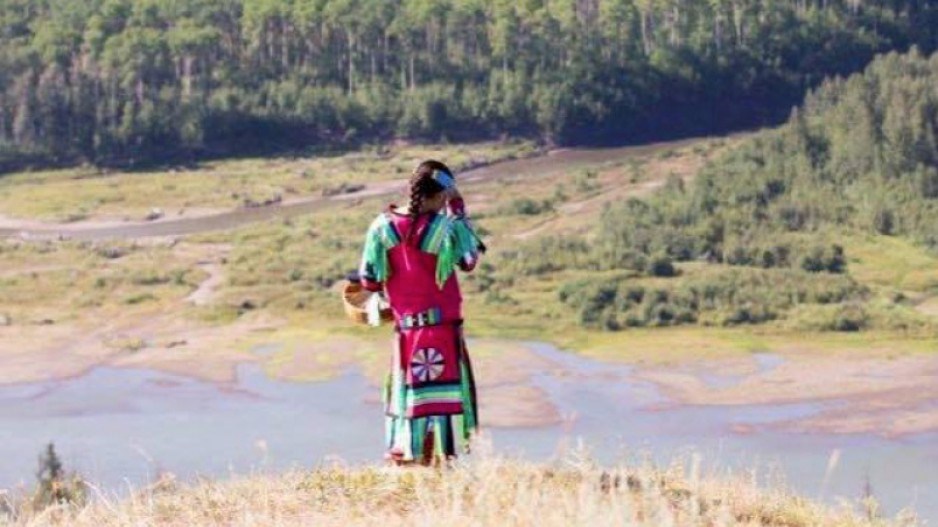Amnesty International has thrown its support behind opponents of the Site C dam in a new report that recommends the federal government suspend construction permits on the controversial project.
The human rights group released the results of its months-long look at the impacts of resource development on First Nations people in Northeast B.C. Aug. 9.
The 20-page report, titled “The Point of No Return,” concludes with seven recommendations, including that the federal government suspend construction approvals and “properly examine the role of resource extraction in increased risk of violence (against) women” in northern B.C.
The report “marks the beginning of a global campaign by Amnesty to halt Site C’s construction,” the organization wrote in a release. It concludes by quoting Chief Lynette Tsakoza of the Prophet River First Nation, one of two nations challenging the project in federal court.
“It is not too late to change course,” Tsakoza is quoted as saying. “The damage to the Peace River is not yet irreversible. Stopping Site C is a perfect opportunity to demonstrate to all Canadians that the government takes reconciliation seriously.”
The release comes just days after the one year anniversary of construction on the dam. On July 28, the Trudeau government approved fisheries and water permits allowing construction on the dam to continue. Opponents regarded the move as a betrayal of the government’s pledge to establish a “nation to nation” relationship with Canada’s First Nations.
Three Amnesty researchers visited Fort St. John and area First Nations in spring of 2015, focusing specifically on the impacts of resource development on Aboriginal women. The researchers noted that major projects do not fully consider the “cumulative impacts” of resource projects on cost of living and social services, which puts women and girls at risk.
The report also recommends the federal government “carry out a comprehensive reform” of how environmental assessments are carried out to incorporate the “free, prior and informed consent” of Indigenous peoples.
Amnesty’s findings will likely fuel debate over the $8.8 billion dam project—a major part of the B.C. Liberal government's economic development policy. The government maintains the dam is the best way of meeting the province’s longterm energy needs. The B.C. NDP, meanwhile, says it remains open to cancelling the project if elected in May 2017.




